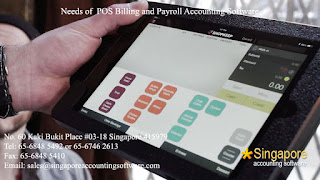Needs of POS Billing and Payroll Accounting Software
Time and POS billing software is frequently implemented without integration with the accounting software package.
Both systems end up maintaining their own individual set of customer records. Double the customer info data input is required when the systems are disconnected.
Without integration, data for each invoice billed will also need to be entered twice.
A lack of communication between systems can result in less than optimal decision making or tedious workarounds. For instance, if there are unpaid invoices in accounts receivable, perhaps additional work shouldn’t be performed to limit the risk of uncompensated services. Manual processes to communicate this information tend to be unreliable and add to the administrative, non-revenue generating workload.
Making sure data can flow between Payroll Accounting software applications is an easy way to decrease overhead expenses and boost profitability. Integrating software is, for the most part, a one-time cost. Integration enables cost-saving benefits that stem from removing inefficiencies and improving data visibility that will continue to accrue as long as your run the software.
But ensuring systems can integrate can be intimidating to non-technical buyers. If you know what to look for, it’s not as hard as it seems.
The preferred Payroll Accounting Software integration method in most cases will be via an API. API stands for application programming interface. An establishes the rules for how an external program can make changes (adds, deletes, updates) in the software.
Ensure both POS billing & Payroll Accounting Software systems have capabilities to allow for bi-directional integration.
Identify the processes that will require a connection between systems and the data that will need to be passed.
Inquire with providers to ensure the necessary actions can be conducted for each piece of data that will need to be transferred.
Integration without an still possible in many cases. As long as the application’s underlying database is open and accessible, changes to the data contained in the software can be initiated externally. Initiating repeatable direct changes to the database will require the creation of custom database scripts. In the absence of IT personnel capable of creating these scripts, most software providers can offer these services.




Excellent post! epos I appreciste your work, great stuff to share.
ReplyDelete